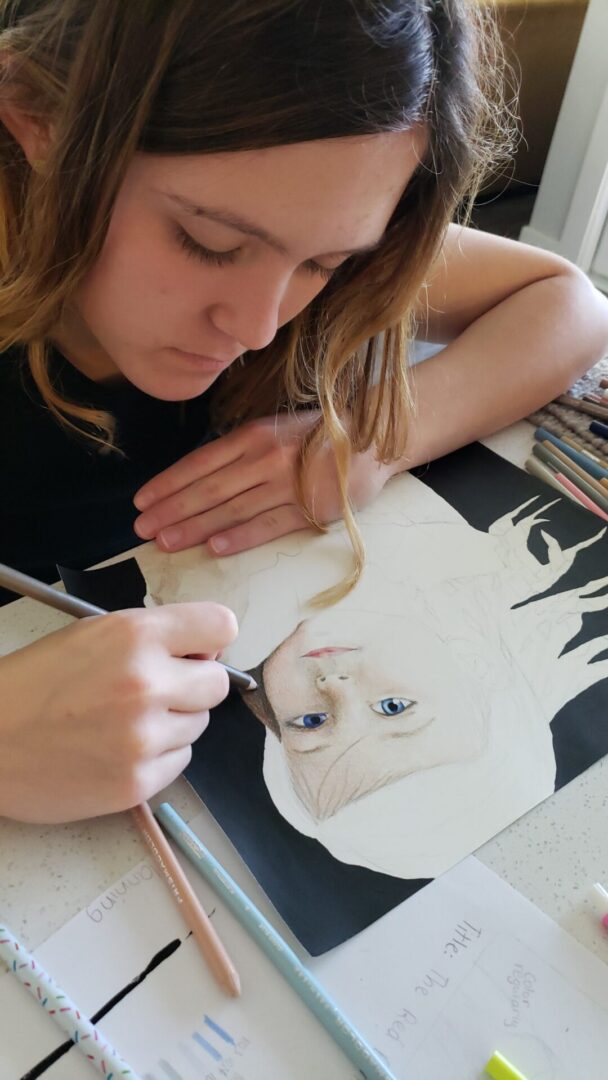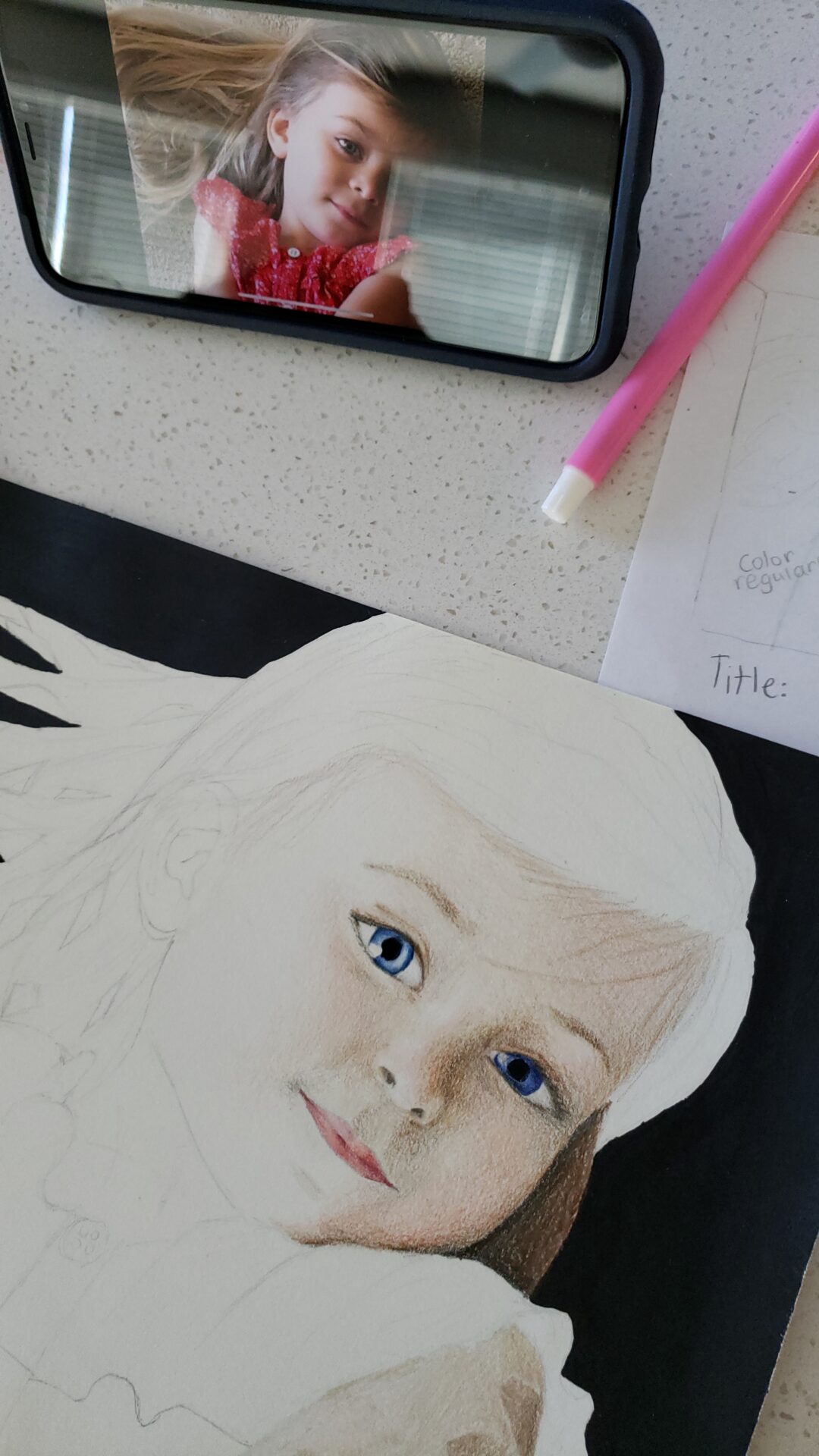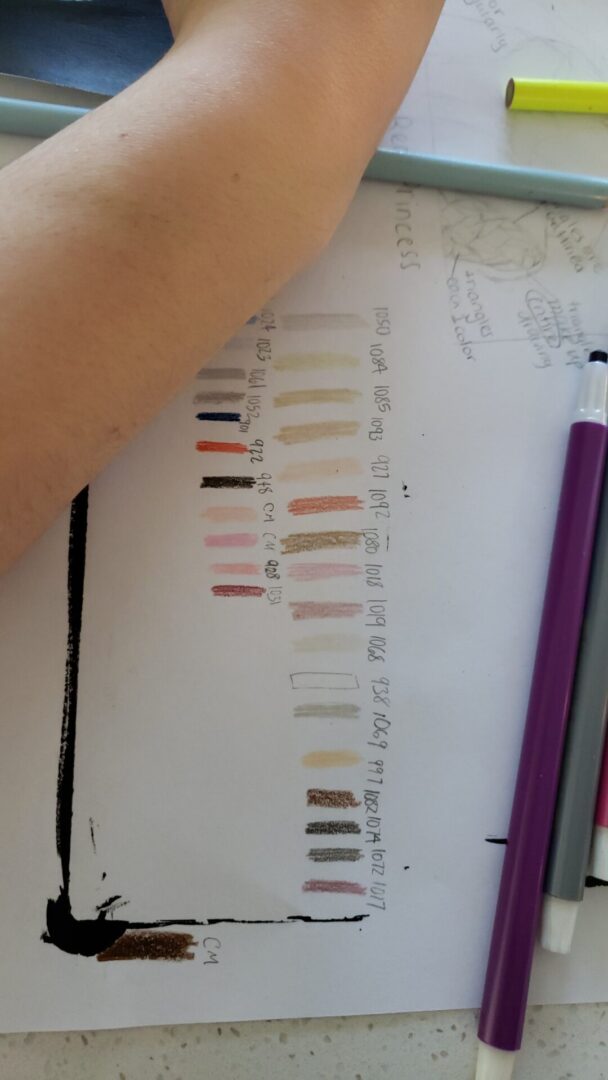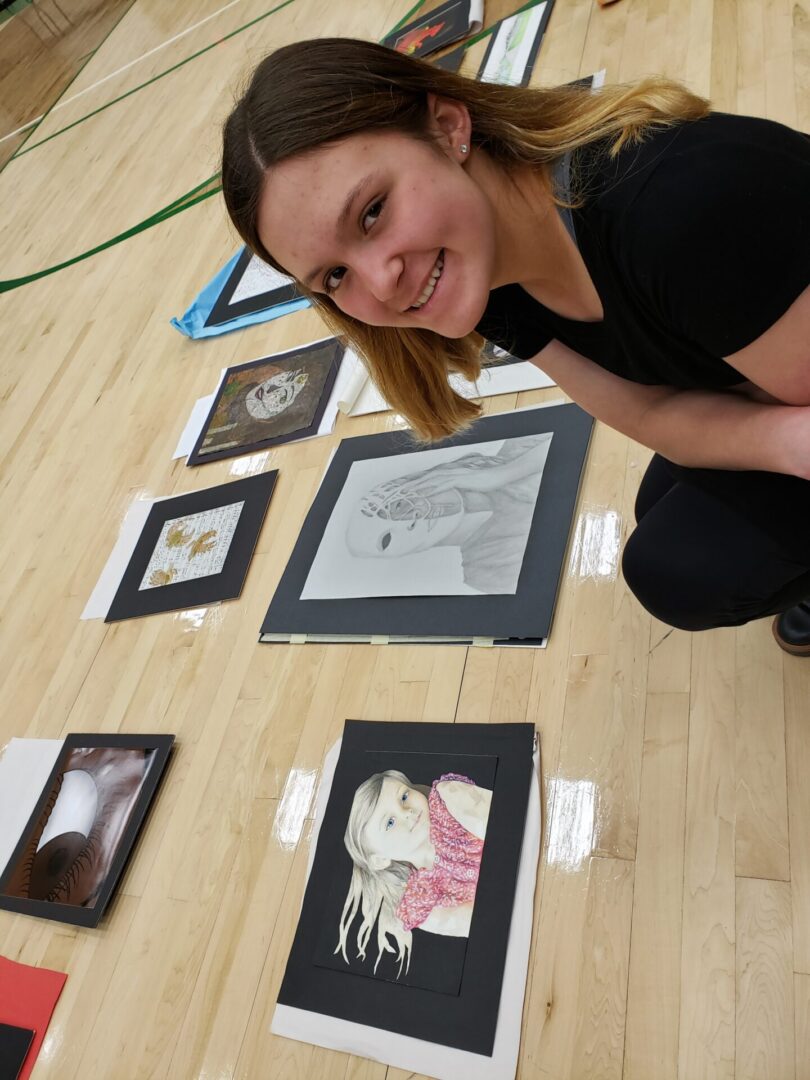Support Their Interests, Even If They’re Not Yours
“Passion is energy. Feel the power that comes from focusing on what excites you.” – Oprah Winfrey
One of the most important (and sometimes humbling) parts of parenting is learning to support your child’s interests—even when they don’t align with your own. You might have dreamed of passing down your love for sports, literature, or music, only to discover your child is obsessed with insects, ancient history, or clay modeling. That’s not just okay—it’s a gift.





Ashley, our eldest daughter, spent weeks drawing this portrait of her younger sister, Katie—based on a photo she took herself. She entered the piece, titled “The Red Princess,” into the Texas Junior VASE (Visual Art Scholastic Event) through her middle school and was honored with the highest possible recognition: the Platinum Award for Division 3, Region 10N, representing Trent Middle School in Frisco, Texas. Her dedication, vision, and passion speak volumes—proof of what can happen when we support a child’s creative gifts.
🔗 View her artwork on the VASE website
Passion Is a Natural Motivator
We’ve seen it firsthand in our home. All three of our kids love science. One lives for history—digging into wars, timelines, and historical figures like most kids dive into video games. Our oldest is a gifted illustrator and could draw for hours. Our youngest? A sculptor through and through. Tiny fingers that once mashed mashed potatoes now shape animals and creatures out of modeling clay with incredible focus and joy.
And so we lean in.
We feed their passions with books, museum trips, and enrichment programs. If there’s a workshop on ancient civilizations, we sign up. A science fair in town? We're there. Art class in the park? Packed snacks and paintbrushes.
Because when kids are passionate, they’re naturally motivated. They’ll push through challenges, engage more deeply, and grow in ways that standardized curriculum could never fully measure.
Why It Matters
Supporting your child’s unique interests helps build:
-
Confidence: They feel seen and valued.
-
Curiosity: Their questions become deeper and more self-directed.
-
Connection: They know you’re on their side, even when their interests are outside your comfort zone.
It also sends a powerful message: Your passions are valid. You don’t have to follow in anyone’s footsteps—you can blaze your own trail.
It’s Not About You
This is where the parenting shift happens. Instead of trying to shape your child in your image, you become a student of who they are. You learn to listen. To observe. To provide resources, not resistance.
Sure, you might not love reading graphic novels or learning about reptiles, but your enthusiasm for them makes the difference. They don’t need you to become an expert. They need your encouragement, your presence, and your willingness to say, “That’s so cool—tell me more.”
A Challenge Worth Embracing
Not every passion will lead to a career, but every passion can teach something valuable—discipline, creativity, perseverance, or critical thinking. The goal isn’t to push them toward practicality too early. The goal is to help them fall in love with learning and exploration.
Let them geek out. Let them build, draw, collect, research, and create. Show up for it. Cheer for it. Invest in it when you can.
Their joy is worth it.
🔗 Coming Soon: Letting Kids Lead: Encouraging Individual Learning Interests – a deeper dive into how to follow your child's natural learning path without losing sight of structure and goals.
Final Thoughts
Supporting your child’s interests—especially when they differ from your own—is one of the most generous and growth-filled choices you can make as a parent. It requires humility, curiosity, and a willingness to let go of the script you may have imagined for them.
But when you lean into their passions, you give them something far more powerful than a polished résumé: you give them confidence, autonomy, and the freedom to become who they were meant to be.
Even if you don’t love science fairs, messy art projects, or historical deep-dives, your willingness to show up anyway tells your child, “What matters to you matters to me.” And that kind of support? It fuels a lifetime of learning, self-trust, and purpose.
Bookmark this post! I’ll be adding links to each of these topics in the coming weeks with more personal stories, strategies, and tools you can use.
Want to make sure you don’t miss those deep dives?
📬 Subscribe to our newsletter for updates and parenting tips!

